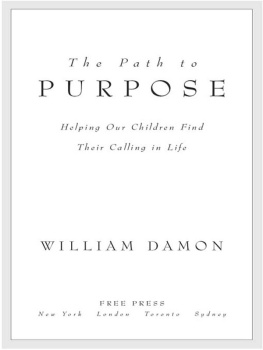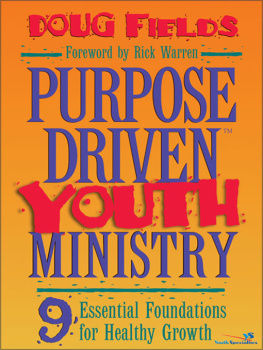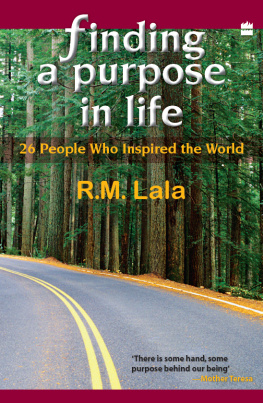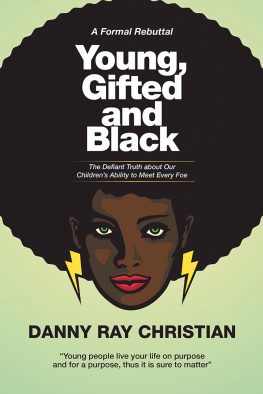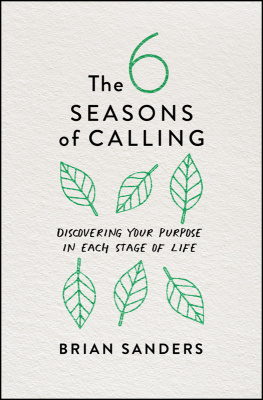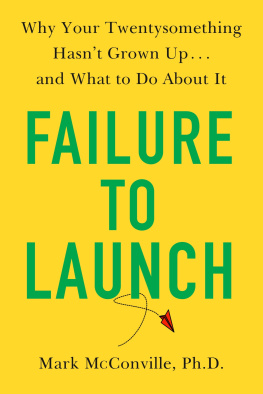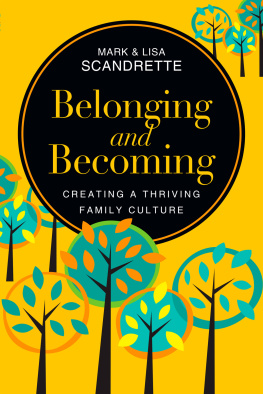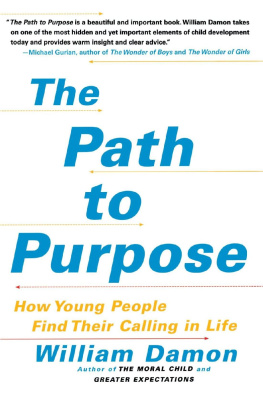All rights reserved, including the right to reproduce this book or portions thereof in any form whatsoever.
For information address Free Press Subsidiary Rights Department, 1230 Avenue of the Americas, New York, NY 10020.
FREE PRESS and colophon are trademarks of Simon & Schuster, Inc.
To the memory of Helen M. Damon
PREFACE
In my career as a research psychologist, I have always chosen topics of study that seemed interesting and important to me (or why would I bother?), but I have never felt compelled to explore a particular subject. The idea of studying purpose came upon me differently. It did not feel like just another research topic but rather a culmination of the work that I had been doing on moral commitment, character education, and human development for over thirty years. Whats more, at a time when a prevalent sense of emptiness looms as one of our greatest contemporary psychological dangers, the study of purpose seemed to me crucial in a societal sense.
In my prior work, I had encountered the notion of purpose many times, but dimly and indirectly, as if through a telescope with an ill-fitted lens. None of my earlier studies was about purpose per se; yet I now see that much of what I have been trying to understand for many years does in fact hinge on purpose. A study I conducted (with Anne Colby) of extraordinary moral commitment found that people who pursue noble purposes are filled with joy, despite the constant sacrifices that they feel called upon to make.
This work led me to examine how young people find their purposes in life. Do adolescents have purposes, and if so, how do they learn them? What kinds of purposes, in addition to those related to careers, are inspiring todays young? What happens when young people are unable to find any purpose at all to devote themselves to? The present book is the first account of the insights that I and my students have been gaining through our initial research into these questions.
This is the third book that I have written about youth development with a public audience in mindone per decade, it seems, since 1988: The Moral Child in 1988; Greater Expectations in 1995; and now The Path to Purpose . Looking back, I can see that each book has been to some extent a product of its time. During the 1980s, I was troubled about the ethic of moral relativism that was swaying the intellectual currents of American culture and beginning to trickle down to schools and the media. In The Moral Child , I made a case for the universality of core moral values and the importance of clarity in the moral education of young people. A fair number of people read the book, but it certainly did not have much impact on our cultural practices. Indeed, by the 1990s, the culture of child rearing had become thoroughly dominated by approaches that looked askance at moral standardsand, for that matter, standards of any kindas vestiges of insensitive traditionalism. Self-esteem had become the holy grail of child rearing, and parents were advised to avoid traumatizing their (supposedly) fragile children by asserting authority too forcefully or urging them to strive for excellence, take on challenges, and control their behavior according to ethical strictures. In response, I wrote Greater Expectations: Overcoming the Culture of Indulgence in Our Homes and Schools. This time, I believe, people did listen (not just to meother like-minded social critics were voicing similar concerns). By the end of the decade, phrases such as high standards and character education could be heard on the tongues of influential educators and public officials whenever they spoke about their policies for youth. A number of things did start to improve: youth crime has abated to some extent; voluntary service among the young has skyrocketed; and most of the experts stopped treating self-esteem as the highest goal of human development. These, I believe, are all good developments, improving capacities to promote the well-being and future prospects of our young. And many young people today are thriving in every sense of the word.
But the present time, too, has its hazards, and they are serious. The most pervasive problem of the day is a sense of emptiness that has ensnared many young people in long periods of drift during a time in their lives when they should be defining their aspirations and making progress toward their fulfillment. For too many young people today, apathy and anxiety have become the dominant moods, and disengagement or even cynicism has replaced the natural hopefulness of youth.
This is not a problem that can be addressed by solutions advanced in the past. In fact, the high standards that I and others have argued for are not a sufficient answer to this particular matter. The message that young people do best when they are challenged to strive, to achieve, to servea message that I still hold with convictionfails to address the most essential question of all: For what purpose? Or, in a word, Why? For young people, this concern means starting to ask, and answer, questions such as: What do I hope to accomplish with all my efforts, with all the striving that I am expected to do? What are the higher goals that give these efforts meaning? What matters to me; and why should it matter? What is my ultimate concern in life? Unless we make such questions a central part of our conversations with young people, we can do little but sit back and watch while they wander into a sea of confusion, drift, self-doubt, and anxietyfeelings that too often arise when work and striving are unaccompanied by a sense of purpose.
Youth is a time of idealism, and young people take advice about seeking fulfillment and passion in life seriously. But such advice, given only at the margins of their daily experience (such as at commencement time or other ceremonial occasions), tends to be rich in generalities and sparse in useful details. In the real world of competition, job requirements, and societal responsibilities, how, the young person wonders, can I manage to find something that is both rewarding and meaningful? How can I pursue my dreams and avoid selling out without diminishing my chances to provide for myself and the family I would like to have? How can I earn a living as a valued member of society and make a positive difference in the world? These are questions that, sooner or later, all young people must confront in order to make their most crucial life choices.

